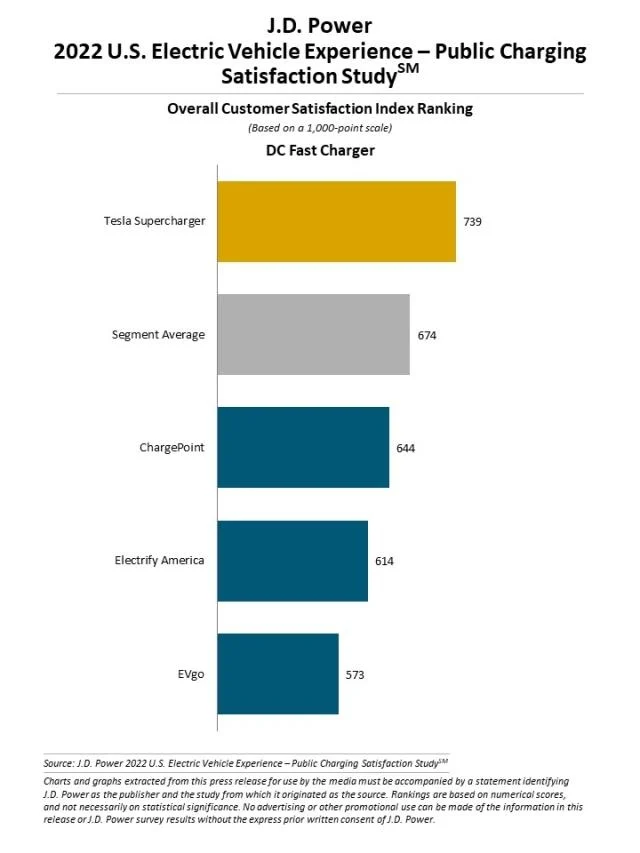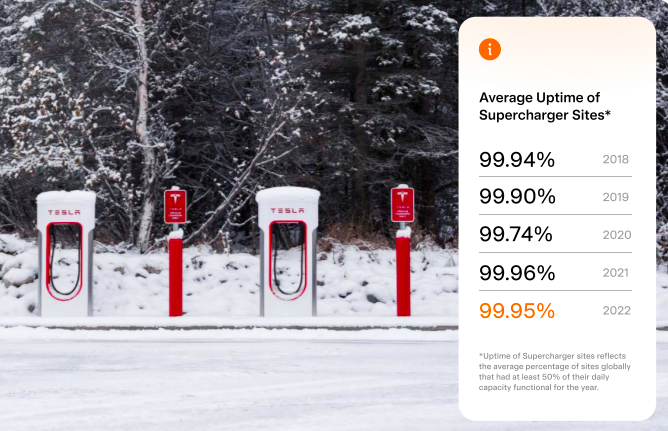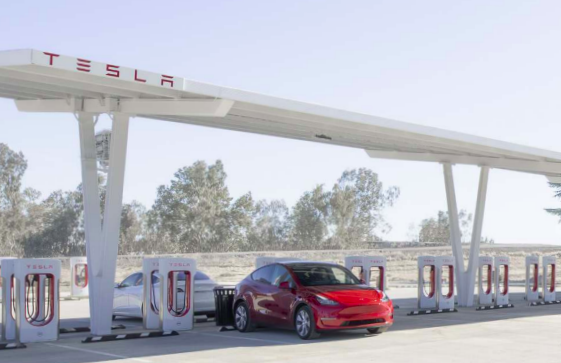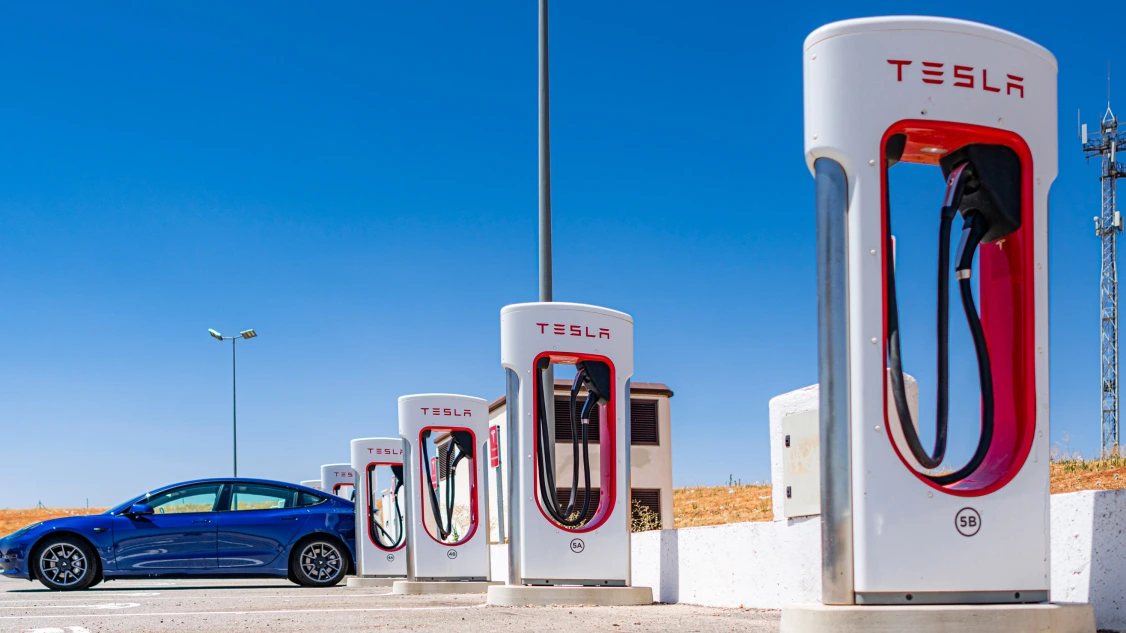Tesla CEO Elon Musk doesn’t see the adoption of Tesla Supercharger stations and the North American Charging Standard (NACS) by legacy carmakers Ford and GM as a threat.
Instead, industry analysts believe that Tesla is just getting started with selling access to its infrastructure and technologies, drawing parallels to Amazon Web Services (AWS) and its transformation from an internal cloud to a dominant cloud computing platform.
Dan Ives, an analyst from Wedbush Securities, sees this as a significant opportunity for Tesla. He suggests that Tesla’s collaboration with Ford and GM is the first step and envisions potential partnerships in battery technology in the future. By granting access to its technology and infrastructure, Tesla could generate billions in revenue and drive the broader adoption of electric vehicles (EVs) in the United States.
Tesla aspires to be as helpful as possible to other car companies.
We made all our patents freely available several years ago.
Now, we are enabling other companies to use our Supercharger network.
Also happy to license Autopilot/FSD or other Tesla technology.
— Elon Musk (@elonmusk) June 5, 2023
Tesla’s Superchargers Lead the Way
Tesla’s Superchargers have long been considered the gold standard in the EV charging industry. With a decade-long head start in investing in its public fast-charging network, Tesla has established a level of reliability that sets it apart from competitors.

According to a survey conducted by J.D. Power, Tesla Superchargers received the highest ranking among all available DC fast chargers. Tesla’s ranking was significantly higher than its competitors, making it the only DC fast-charger brand to surpass the industry average.

Tesla’s commitment to providing top-quality charging infrastructure is further demonstrated by the high ranking of its Destination chargers, which were rated highest among Level 2 charging stations. This recognition from EV drivers solidifies Tesla’s position as a leader in the charging industry, offering superior charging solutions for electric vehicle owners.
Tesla’s recent Impact Report, released in April, highlighted an impressive statistic regarding the uptime of its Superchargers. According to the report, Tesla’s Superchargers have maintained an uptime of at least 99.9 percent since 2018.

In Tesla’s definition, uptime means that at least half of the chargers at a Supercharger site are operational on any given day. This exceptional level of reliability and availability reinforces Tesla’s commitment to providing a seamless charging experience for its customers, ensuring that they have convenient access to charging infrastructure whenever they need it.
Automotive Giants Partner with Tesla
Ford, GM, Rivian, Mercedes-Benz, Polestar, and Volvo are among the automotive companies that have announced their partnership with Tesla, adopting its NACS connector and gaining access to its Supercharger network. Ford, starting in the spring of 2024, will allow its EV owners to use Tesla Supercharger stations and plans to feature the NACS plug in its future EV models.
General Motors will also provide its EV owners with access to Tesla’s Superchargers through an adapter starting in 2024, with plans to make the NACS standard on all its EVs by 2025. Rivian, Mercedes-Benz, Polestar, and Volvo will follow suit, making the NACS port standard on their EVs and providing adapters for compatibility with non-Tesla charging stations.
These partnerships reflect the industry’s recognition of Tesla’s superior charging infrastructure. Tesla’s Superchargers have consistently outperformed other charging options, as evidenced by the J.D. Power survey results. More than one in five EV drivers reported being unable to charge at non-Tesla stations, while Tesla Superchargers had a significantly lower failure rate of less than 4%.

The high reliability and availability of Tesla Superchargers have led other automakers to adopt Tesla’s charging system, ensuring their EV owners have access to a reliable and efficient charging network.
Tesla’s commitment to delivering an exceptional charging experience has contributed to its status as the preferred choice for EV drivers. According to the J.D. Power survey, Tesla drivers rated their overall satisfaction with DC fast-charging options significantly higher than the industry average.
This satisfaction can be attributed to Tesla’s dedication to maintaining the uptime of their Superchargers, ensuring that EV owners can rely on their charging infrastructure.
The adoption of Tesla’s NACS connector as the industry standard further solidifies its position. The Society of Automotive Engineers (SAE) International has announced plans to standardize the NACS connector, ensuring that any supplier or manufacturer can use it. This move will promote interoperability, reliability, and convenience for EV owners and increase access to charging infrastructure.
According to David L. Schutt, CEO of SAE International, these efforts contribute to the organization’s commitment to secure, clean, and connected transportation. He stated:
“These efforts will contribute substantially to SAE’s commitment to secure, clean and connected transportation, accessible to everyone. We’re delighted to do our part in aligning the excellent efforts of industry with those of government entities like the Joint Office to advance sustainable mobility on a national level.”
The standardization of the NACS connector, along with other initiatives such as cyber-secure charging and reliability design, strengthens the North American EV charging infrastructure. With over 70% of all EV sales in the United States expected to be compatible with the Tesla standard, Tesla’s Superchargers continue to lead the way in reliability and customer satisfaction.
The EV Industry Needs Improved Charging to Continue to Grow
These developments come at a time when the demand for EVs is on the rise, with surveys indicating that 41% of Americans would be at least somewhat likely to purchase an electric vehicle in the future. However, challenges remain, particularly regarding public charging options.
The lack of charging infrastructure is cited as a barrier to EV adoption by nearly 80% of the public. To address this issue, support for government incentives and funding for electric vehicle infrastructure is growing among the public. Jennifer Benz, deputy director of The AP-NORC Center, said:
“While there is plenty of interest in purchasing an electric vehicle, the high upfront cost of owning one and concerns about the country’s charging infrastructure are barriers to more people driving them.”
As the EV market continues to expand, Tesla’s Superchargers and their widespread adoption present a positive trend for the industry. The accessibility, reliability, and satisfaction associated with Tesla’s charging infrastructure contribute to the overall growth and acceptance of electric vehicles, making Tesla’s Superchargers becoming the industry standard one of the best trends for EVs in a long time.
Related Articles
- How to Buy Tesla Stock in 2023
- 61% of All APP Scams in the UK Are Connected to Meta Says Finance Lobby Group
- Celebrities Like Ryan Reynolds Are Piling into LinkedIn Now, Giving Everyone a Look Behind the Glitzy Curtain
What's the Best Crypto to Buy Now?
- B2C Listed the Top Rated Cryptocurrencies for 2023
- Get Early Access to Presales & Private Sales
- KYC Verified & Audited, Public Teams
- Most Voted for Tokens on CoinSniper
- Upcoming Listings on Exchanges, NFT Drops
